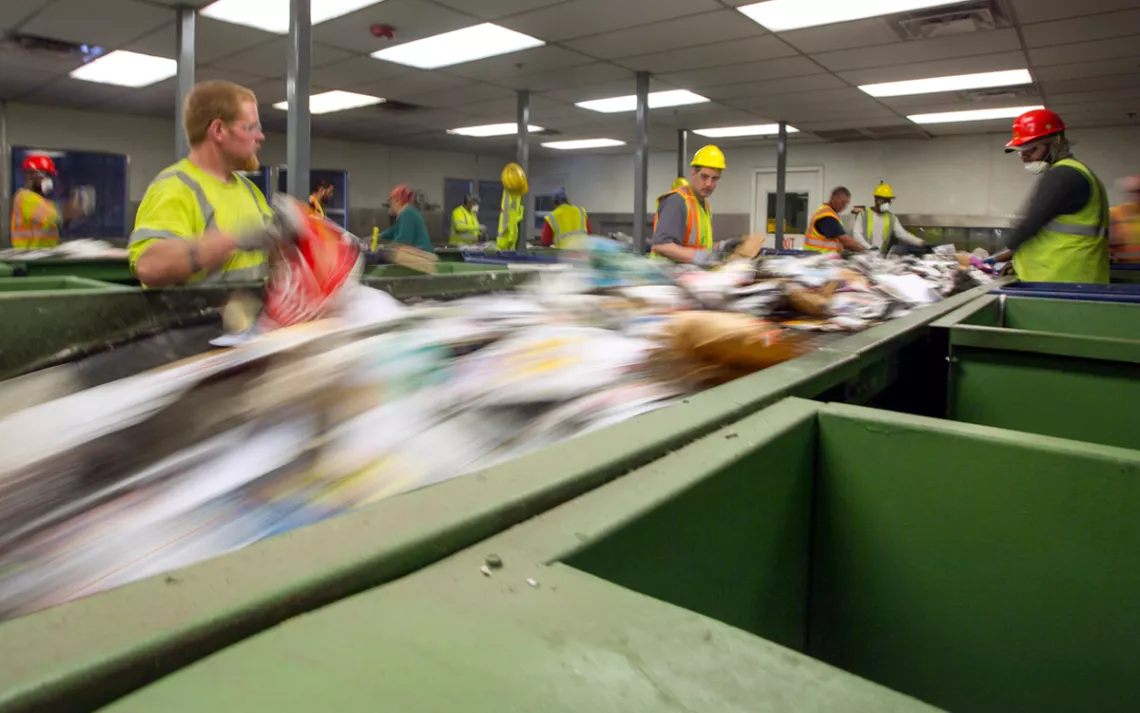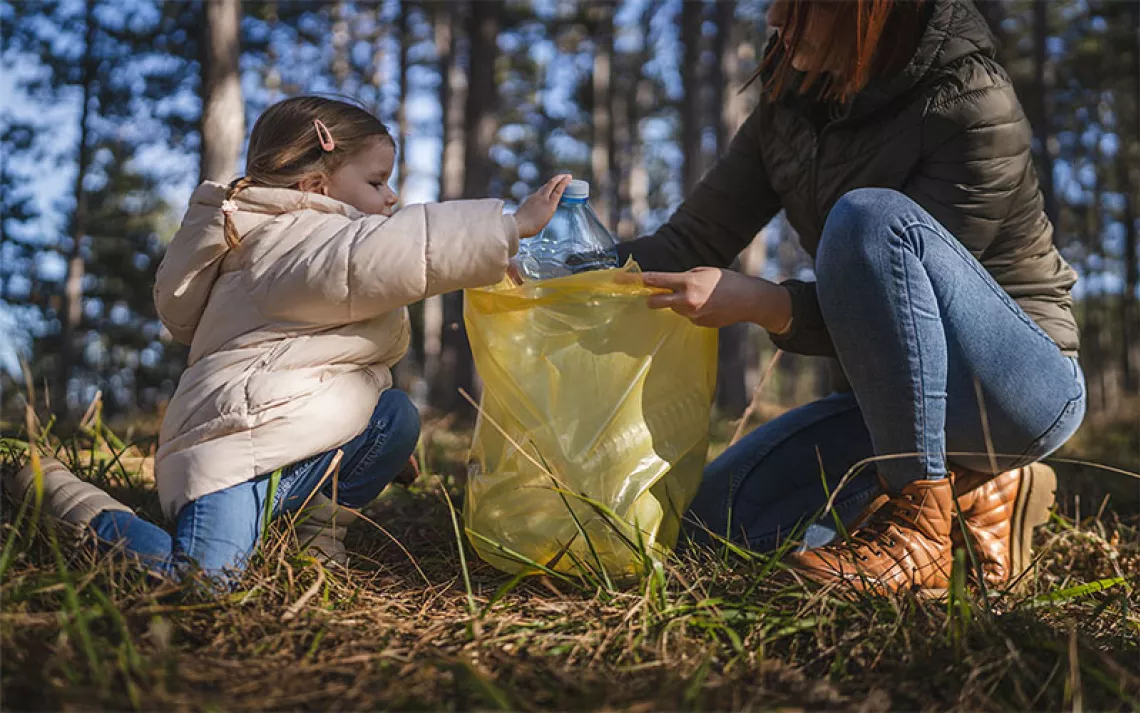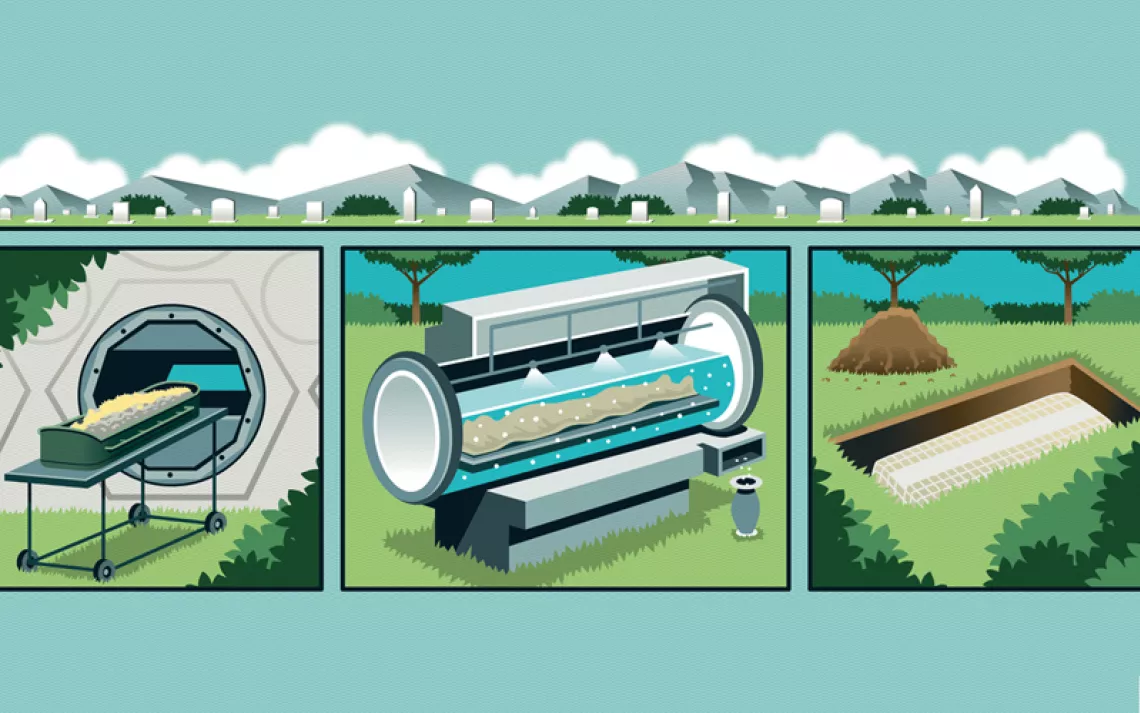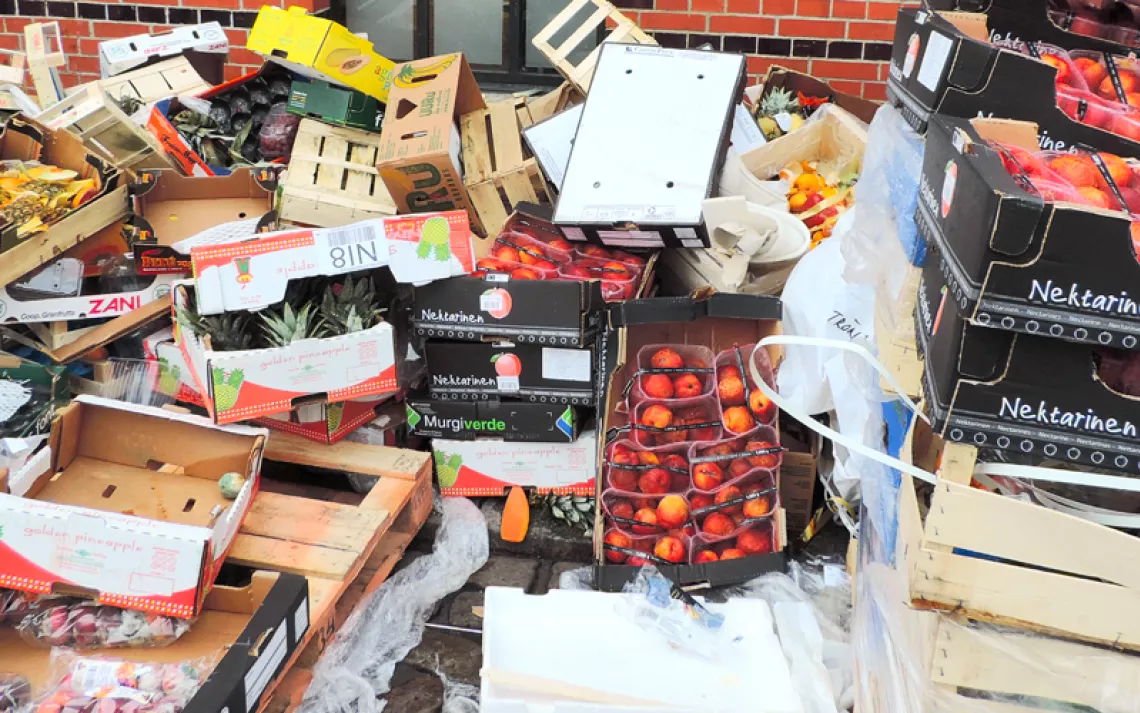Shifting the Costs of Recycling to Manufacturers, Not Consumers
A "trash nerd" gets Maine to fundamentally flip the incentives for recycling

Photo by Derek Davis/Portland Press Herald/Getty Images
Recycling in Maine, as in the rest of the country, has taken a double hit in recent years. In 2018, China stopped accepting the enormous quantities of US trash that used to provide raw materials for its factories. Suddenly, once profitable "recycling" (a lot of it was actually just offshoring) became a net cost that many communities could no longer afford. Then the pandemic accelerated the crisis with enormous amounts of packaging waste from online purchases.
Towns in Maine, like many others across America, either stopped or limited recycling. Stockpiled plastic, paper, glass, and metal just sat. Even communities with strong zero-waste goals struggled, like South Portland (population 26,498), which took a $100,000 budget hit when it could no longer export its waste to China.
Instead of giving up on recycling, however, Maine responded by changing the game, passing a first-in-the-nation law that shifts 100 percent of the cost of recycling from communities and taxpayers to the makers of wasteful products.
"The system finally makes economic sense," says Sarah Nichols of the Natural Resources Council of Maine, a driving force behind the new law. "The people making the waste now have to pay for cleaning it up."
A self-described "trash nerd," Nichols spent years lobbying and building support for the measure. She overcame skepticism by gathering reports and insights from experts in some of the more than 50 countries with producer responsibility laws for packaging, including Canada, Belgium, France, and the UK. All achieve recycling rates vastly higher than Maine's 36 percent, some nearly double that.
The new law, which begins its gradual rollout this July, will expand recycling in participating communities, requiring them to collect everything on a "readily recyclable" list and providing funding for them to do so. Overseen by the state Department of Environmental Protection, a new stewardship organization will collect fees from producers and reimburse towns and cities for their recycling costs. Any fees left over will be used to fund schools and infrastructure, or go to governments and private entities wanting to beef up their packaging and recycling systems.
In the new system, the recycling infrastructure remains the same; just the billing address changes. Manufacturers pay based on the tonnage and volume of the packaging they sell, or they pay a fee if their materials are too expensive or difficult to recycle. The smaller their packaging and the more readily it can be reused or recycled, the less manufacturers pay. (Small businesses are exempted if they have less than $2 million in annual gross revenues or sell less than one ton of packaging per year to consumers in Maine.) It's a form of extended producer responsibility, similar to requirements long in place for recycling computers and electronics. But now the target is the much larger and fast-growing tide of packaging and containers that make up a third of all city and business trash nationally and 40 percent in Maine.
Signed by Maine's governor in summer 2021 despite stiff opposition from industry, the bill proved so compelling that Oregon quickly followed with its own version. Now, the legislatures in 15 other states—including California, New York, Illinois, and Pennsylvania—are working on their own extended producer responsibility programs.
Critics included the Consumer Technology Association, the Northeast Dairy Foods Association, and the global lawn, garden, and pest-control giant Scotts Miracle-Gro. They lobbied hard against the law, calling it a job and economy killer, and demanded that whatever new program was adopted, industry should be in charge of it.
Some Maine businesses supported the new law, however, including popular craft-beer maker Allagash Brewing Company. Founder Rob Tod testified at the legislature that he believed it was fair to "address the urgent issue of waste—in our forests, rivers, and oceans—by shifting the onus onto the companies that create it."
"Some of them will outright oppose any change from the failed status quo," says Nicole Grohoski, the Maine state representative who sponsored the new law. "This system isn't fair, and it isn't working. . . . Quite simply, [the new law] puts the cost back on the cost causers."
Nichols is still on the case, advocating for a faster implementation of the law. Determining what goes on the list of readily recyclable products is another coming battle. The packaging industry wants to include basically everything it makes on that list, while the Natural Resources Council of Maine and its allies are pushing for a restrictive list limited to materials that can affordably be recycled into similar products.
Meanwhile, Nichols is gearing up to fight an anticipated rearguard action by opponents who hope to make watering down the law or even killing it outright an election issue this fall.
"The fight's not over yet," she says. "The fight's never over."
This article appeared in the Summer 2022 quarterly edition with the headline "Trash Nerd."
 The Magazine of The Sierra Club
The Magazine of The Sierra Club



